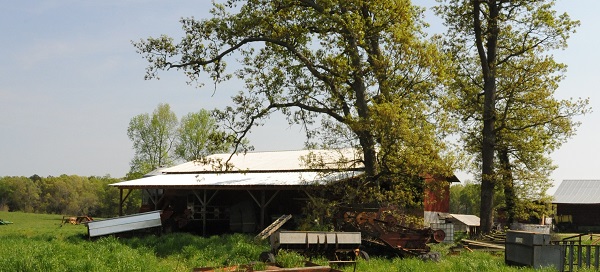On Thursday, August 27th, Triangle Land Conservancy (TLC) will present the Conservation for All Farm…

The Farm Bill, the massive federal legislation that funds everything from nutrition assistance to crop insurance to conservation, is being signed into law by President Obama today. Like any big piece of policy, there’s plenty of debate on the merits of the bill, which authorizes $956.4 billion over 10 years (see a good overview chart here). For instance, cuts to the food stamp program are controversial.
On the conservation side of things, the Farm Bill has provided critical funding for land protection, investing billions in programs such as the Farm and Ranch Lands Protection Program (FRPP) nationwide. Farmland protection in the Triangle has benefitted from these initiatives like TLC’s recent work to protect the Lindley Farm in Chatham County’s Silk Hope area that was partially funded with FRPP assistance.
In the new Farm Bill, there are some great conservation wins including:
• Conservation funding for land protection – several existing programs (the Wetlands Reserve Program, the Grassland Reserve Program and FRPP) are combined into one new Agricultural Conservation Easement Program that will provide over a billion dollars over the next ten years. This funding is considered “permanent,” meaning it doesn’t have to get reauthorized during every five year farm bill debate. The bill also creates a “cost-share waiver” so that the Department of Agriculture can waive cash cost-share requirements for protection of active agricultural land held by land trusts.
• Conservation compliance – for the first time, farmers receiving federal crop insurance premium subsidies will have to practice soil, wetland and water conservation on vulnerable lands to ensure that federal tax dollars support effective conservation practices.
• Regional Conservation Partnership Program – this program also consolidates several existing programs and targets funding to improve farm practices to reduce nutrient pollution impacting clean water. This could help in places like North Carolina where nutrients from agricultural land threaten drinking water from places like Jordan Lake.
• Sustainable food systems – several provisions improved local and regional food systems and food access including increased funding for the Farmer’s Market and Local Food Promotion Program and makes the purchase of fresh food more accessible by allowing food stamps to be used to participate in local Community Supported Agriculture groups.
These are great victories and we thank the many people involved in making them happen, and look forward to putting some of these new programs to good use in our work to support local farms and food.
Note that the above provisions are just a sample, and for more detailed analysis, including the good and the bad, check out:
• Land Trust Alliance
• National Wildlife Federation
• National Sustainable Agriculture Coalition
